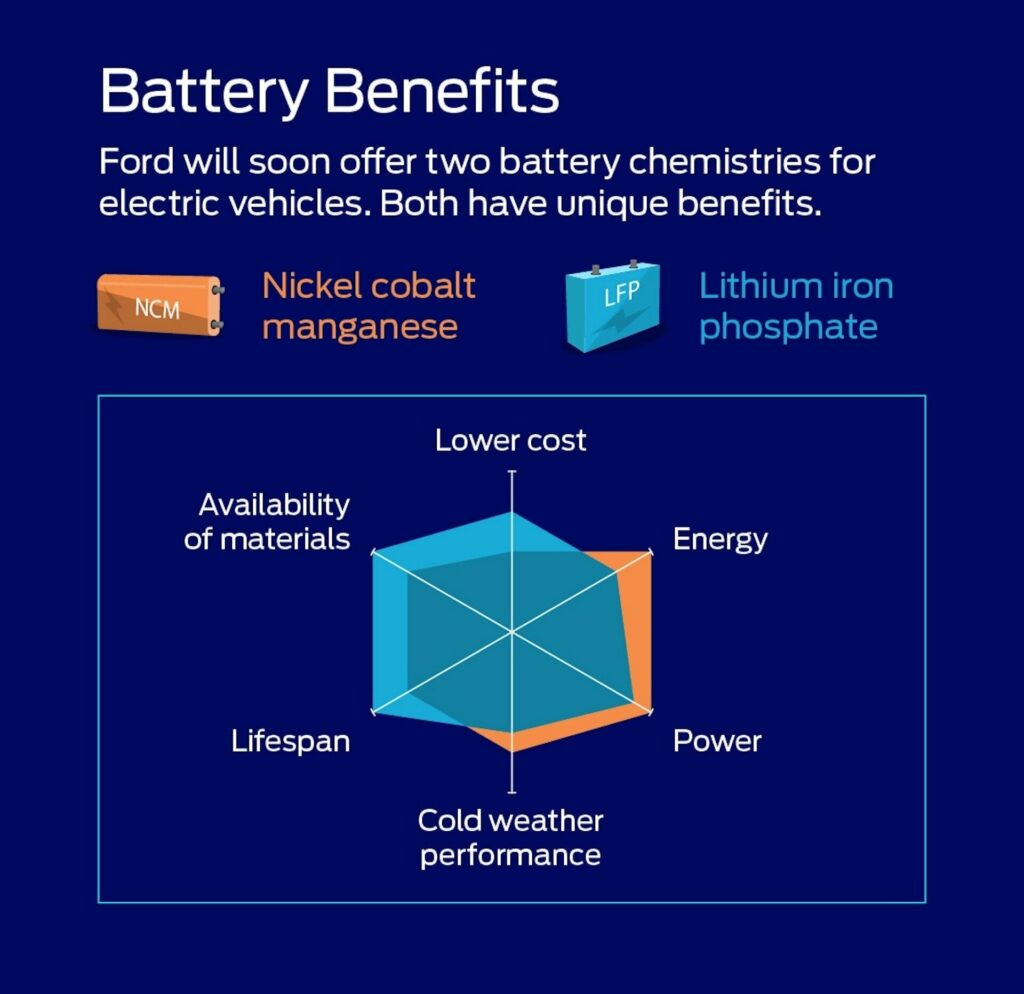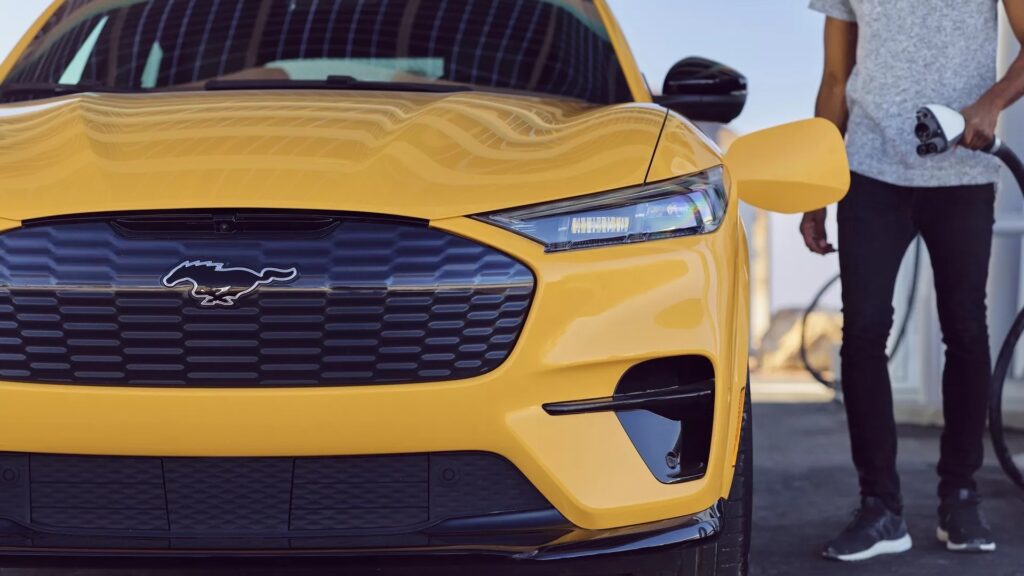You’ve probably heard about Ford’s plans to open a new $3.5 billion battery plant in the U.S. in 2026. BlueOval Battery Park Michigan will employ 2,500 American workers to build a new generation of lithium iron phosphate (LFP) batteries that Ford says will cost less to produce, reduce wait times for customers and are kinder on the environment.
But later this year, long before that plant is up and running, Ford will start fitting LFP batteries built in other facilities to its EVs. The Mustang Mach-E is first to get the tech in the second half of 2023, with the F-150 Lightning truck receiving its quota of the new style power packs in 2024.
What we weren’t sure of is how Ford would offer both LFP batteries and the older style nickel-cobalt-manganese (NCM) batteries it says it will continue to produce in parallel. Ford admits that each battery type has its strengths and weakness, and suggested customers would get to “choose an electric vehicle with unique battery performance characteristics most aligned with their needs.” But what does that exactly mean?
Related: Ford Mustang Mach-E Powers Up With Cheaper, Faster-Charging LFP Batteries
What it means is that electric vehicles ordered with a standard range battery pack will get the new LFP batteries, while those optioned as long-range models will stick with the NCM type. A Ford spokesperson told Carscoops that the LFP batteries would offer a similar electric driving range to the current standard-range NCM batteries but have the advantage of charging at faster speeds and the durability to withstand repeated top-ups to 100 percent without degrading like NCM packs would. On the flip-side, NCM batteries are claimed to perform better in cold weather.
How much faster the LFP batteries will charge, Ford won’t reveal until later in the year. It was also fairly ambiguous in its reply when asked by us whether the reduced cost of LFP batteries would result in further price cuts for the Mach-E later this year, or whether it would simply allow Ford to offset the loss of revenue resulting from the price cuts it announced last month.
“This lower-cost battery, at scale, will help Ford contain or even further reduce EV prices for customer,” is all it would say.





